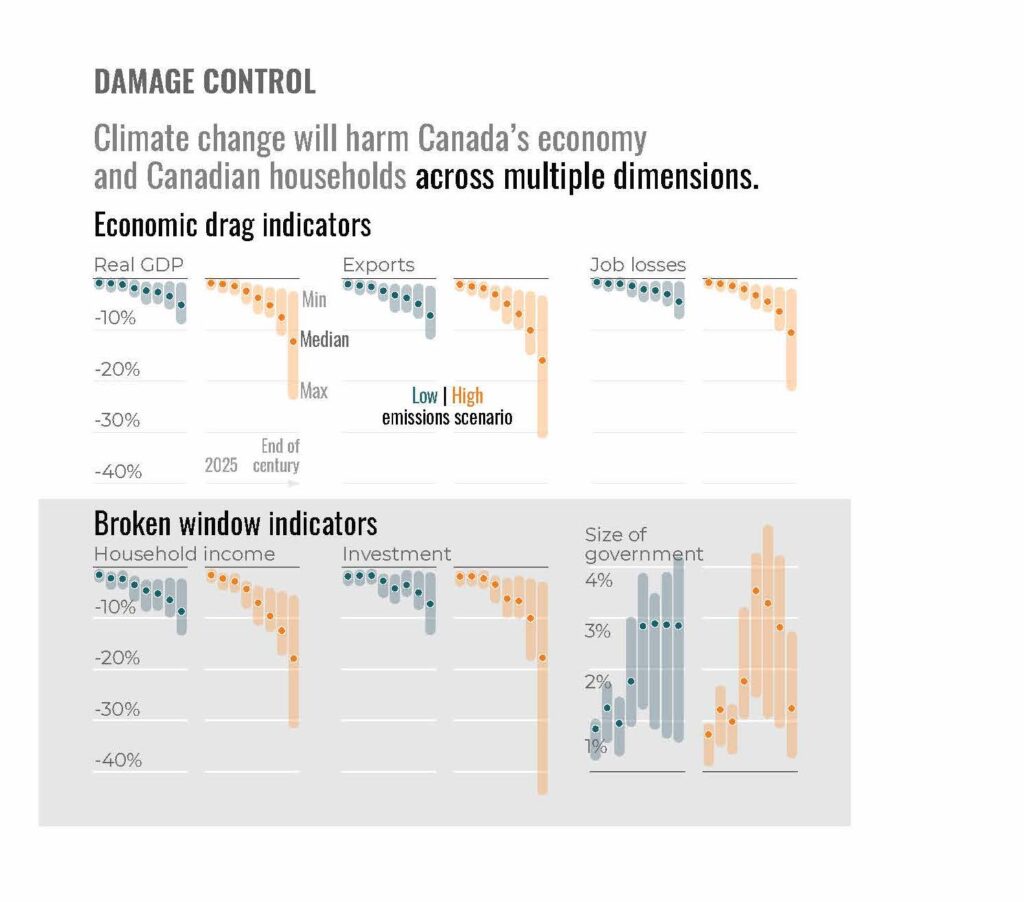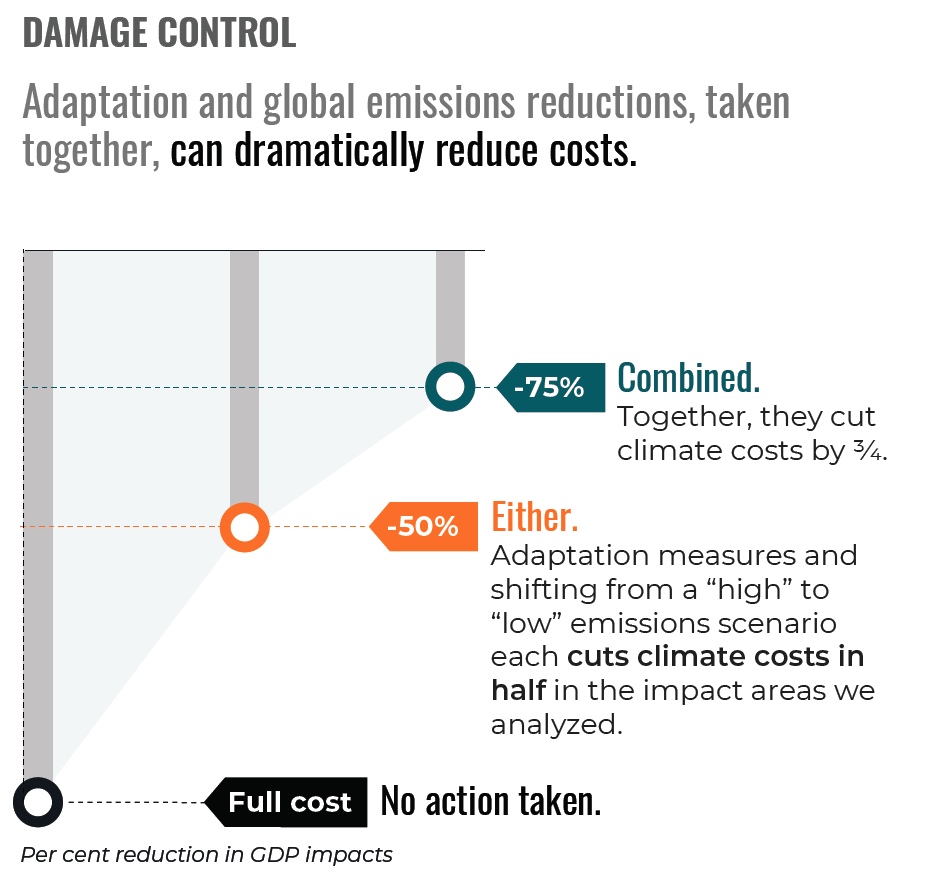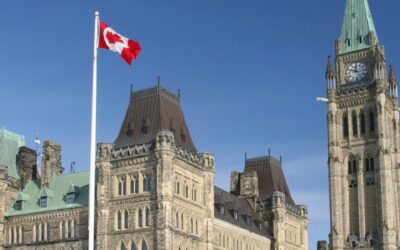OTTAWA, September 28, 2022—A report released today by the Canadian Climate Institute shows that the mounting costs from the impacts of climate change are already dragging down Canada’s economy. Our analysis also shows that these costs will rise swiftly in the coming years. The report—Damage Control: Reducing the costs of climate impacts in Canada—examines the macroeconomic costs of climate change. We assess these costs in both low- and -high emissions scenarios relative to a stable-climate scenario. The analysis also shows that the impacts of climate change in Canada will cost billions, making life less and less affordable for households as economic growth slows, governments raise taxes to pay for climate disasters, job losses increase, and goods become more expensive due to disrupted supply chains.

The report is a culmination of a five-report series. It is the most comprehensive macroeconomic analysis of the impacts of climate change in Canada to date. While the report shows the impacts of climate change have the potential to cause severe economic damage, it also presents solutions. Proactive adaptation measures and policies can limit the damages from the impacts of climate change. They can cut the projected costs in half, saving billions of dollars, and making life more affordable for households. A dollar invested in proactive adaptation measures, the report finds, can return $13-$15 in direct and indirect benefits. And if adaptation measures are combined with global emissions reductions, future costs could be reduced by three-quarters, putting Canada on a path to a more stable and affordable future.

Key findings from Damage Control: Reducing the costs of climate impacts in Canada:
- Damages from the impacts of climate change in Canada are already here and they’re adding up. By 2025, climate impacts will be slowing Canada’s economic growth by $25 billion annually, which is equal to 50 per cent of projected GDP growth.
- All households will lose income, and low-income households will suffer the most. Low-income households could see income losses of 12 per cent in a low emissions scenario and 19 percent in a high emissions scenario by the end of the century—markedly higher losses than the median income group.
- Climate change is a job-killer. Job losses could double by mid-century, and increase to 2.9 million by end-of-century.
- Adaption pays off big. Every dollar spent on adaptation measures saves $13-$15, including both direct and indirect economy-wide benefits.
- Limiting further warming, while adapting to the warming already baked in, pays off bigger. Taking proactive adaptation measures cuts climate costs in half, and if these are combined with global mitigation measures, then costs are cut by three-quarters.
QUOTATIONS
“The findings couldn’t be clearer: Canada is directly in the crosshairs of a changing climate. The economy is highly sensitive to this threat, and we’re already paying the costs: as early as 2025, the damages will have cut Canada’s growth rate in half. We need to reckon with these massive costs and do everything we can to limit the damage.”
—Dave Sawyer, Principal Economist, Canadian Climate Institute
“The cost of inaction when it comes to climate change is measurable and mounting. We need to put adaptation and mitigation measures in place now to avoid severe damage to our economy, society, health, and well-being.”
—Rick Smith, President, Canadian Climate Institute
“The economic consequences of climate change are only now coming into view, and this report provides thoughtful insights on just how climate change could impact the Canadian economy. The threat is real, but, fortunately, there’s much that can be done to limit the damages. Investing in adaptation and resilience today will help protect Canada’s economy and could save lives. Taking proactive adaptation measures can cut the costs of climate change impacts and provide a strong return on investment, saving money in the long-term while paving the way for a more sustainable and prosperous future for Canadians.”
—Susan McGeachie, Head of BMO Climate Institute, BMO Financial Group
RESOURCES
- Report
- Executive Summary
- Read the other reports in the Costs of Climate Change series:
-30-
CONTACT
Catharine Tunnacliffe
Director of Communications
ctunnacliffe@climateinstitute.ca




